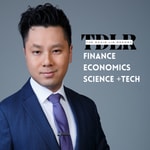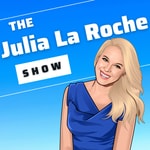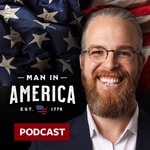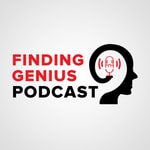Palisades Gold Radio – Details, episodes & analysis
Podcast details
Technical and general information from the podcast's RSS feed.

Palisades Gold Radio
Collin Kettell
Frequency: 1 episode/3d. Total Eps: 34

Recent rankings
Latest chart positions across Apple Podcasts and Spotify rankings.
Apple Podcasts
🇬🇧 Great Britain - investing
29/07/2025#80🇬🇧 Great Britain - investing
28/07/2025#92🇨🇦 Canada - investing
27/07/2025#83🇨🇦 Canada - investing
26/07/2025#79🇨🇦 Canada - investing
21/07/2025#83🇨🇦 Canada - investing
20/07/2025#100🇨🇦 Canada - investing
19/07/2025#90🇬🇧 Great Britain - investing
19/07/2025#96🇨🇦 Canada - investing
18/07/2025#74🇬🇧 Great Britain - investing
18/07/2025#99
Spotify
No recent rankings available
Shared links between episodes and podcasts
Links found in episode descriptions and other podcasts that share them.
See all- https://twitter.com/LawrenceLepard
53 shares
- https://twitter.com/PeterGrandich
21 shares
- https://twitter.com/DaveHcontrarian
12 shares
- https://doomberg.substack.com
14 shares
- https://thegreattaking.com/
8 shares
RSS feed quality and score
Technical evaluation of the podcast's RSS feed quality and structure.
See allScore global : 53%
Publication history
Monthly episode publishing history over the past years.
Parallel Mike: The Red Alert – America’s Financial Instability and the World’s Response
vendredi 30 août 2024 • Duration 01:04:40
Doomberg: The Future of Energy – The Unwavering Power of Reliability Over Hype
jeudi 29 août 2024 • Duration 54:43
Mel Mattison: Part Two – Navigating Tech, Politics, and Power in Times of Crisis
lundi 5 août 2024 • Duration 53:05
Mel Mattison: Part One – Social Security and Medicare Funds Are in Collapse
jeudi 1 août 2024 • Duration 57:41
Michael Pento: An Insolvent Nation with Inflation Problems
mercredi 31 juillet 2024 • Duration 34:33
Kevin Freeman: Breaking Down the Coming Debt Crisis – Five Undeniable Truths About Money
lundi 29 juillet 2024 • Duration 01:11:17
Byron King: Gold Investing – What Can Go Right, What Can Go Wrong
jeudi 25 juillet 2024 • Duration 01:17:36
Chris Macintosh: We are Facing a 1 in 100-Year Financial Rebalancing
mercredi 24 juillet 2024 • Duration 01:05:13
Mikkel Thorup: Protecting Your Investments & Liberty By Seeking Greener Pastures
mardi 23 juillet 2024 • Duration 01:00:27
Peter Grandich: The BRICS are Changing the Landscape for Gold Investors
vendredi 19 juillet 2024 • Duration 50:49









